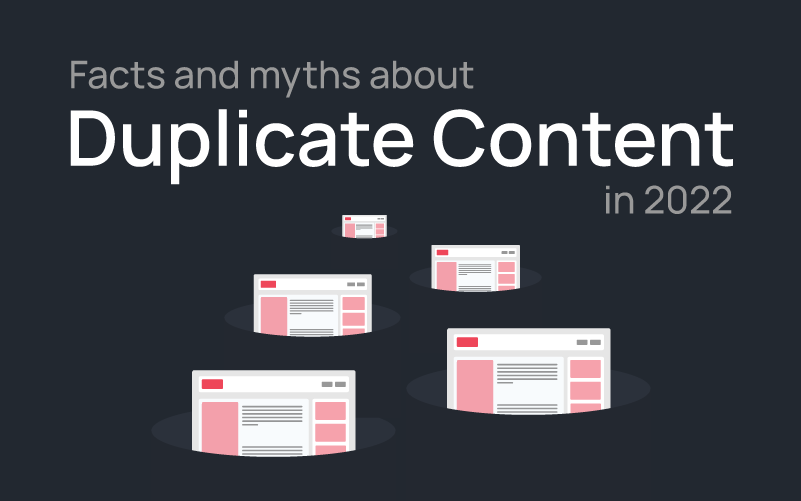There are many myths around duplicate content and its impact on SEO, with one of the most common being to avoid duplicate content completely. However, it’s pretty hard to avoid duplicate information completely and in many cases your website’s SEO rankings wont be impacted. For example, if you write a sentence about being an “Australian owned marketing company” on your About Us page and the same sentence on the homepage is that not duplicate content? Technically yes, but in this case the duplication won’t cause issues with SEO performance. As Google highlights, duplicate content refers to:
“substantive blocks of content within or across domains that either completely match other content in the same language or are appreciably similar.”
So exactly what are the facts & myths of duplicate content and how can you avoid any negative impact to your website?
Duplicate Content Facts
1. Duplicate content to manipulate Search Engines will damage your SEO rankings
While not all duplicate content may negatively impact website performance, if there is clear evidence of multiple pages using the same copy for the purposes of trying to boost performance, then your SEO ranking will be impacted. This is never a recommended strategy to undertake and should immediately be rectified if multiple locations house the same content.
2. Redirects can help absolve issues of duplicate content
Redirects are a good way to help avoid any related to duplicate content. A 301 redirect allows for any link equity or ranking power to be pushed towards the page the user is redirected to.
3. Avoid copying and pasting content across multiple pages
While this sounds obvious, it might seem to make sense to include large amounts of text with important information across multiple pages, such as copyright and disclaimers. If this type of content is needed, try to shorten and change the wording or even link to one page with a longer version of the content. This can not only help to eliminate the chance of large volumes of duplicate content, but is also a better ux experience.
4. Different URLs can cause duplicate content
Differing URLs with the same content can be an example of duplicate content and in some cases these are accidentally created. For example, there may be a sale on a pair of socks and the new URL happens to almost match the old URL. Both of the pages will likely have the exact same content, this can be damaging to the website’s SEO performance.
Duplicate Content Myths
1. Any duplicate content will hurt your SEO performance
As highlighted previously, not all duplicate content will hurt your website’s SEO performance. When possible, always look to try and utilise new or unique content to minimise the risk, but small duplications should not have a major impact.
2. Google can recognise the original content
Scrappers are bots that will essentially crawl and steal your content, creating an almost identical copy in another location. In most cases these new webpages won’t affect your website as they are usually poorly set up with low domain and page authority. But, in the rare case another site with your content starts performing well this can negatively impact your performance, as Google will struggle to recognise the original content. In this case. it’s recommended to contact the site’s host to remove the content or reach out to Google and request it to remove the infringing page.
3. Blocking crawlers for duplicate content will eliminate the issue
When it comes to duplicate content, one tactic is to simply block crawlers from the duplicate content. Unfortunately this course of action can actually have the opposite effect, causing the search engine to assume it is a separate piece of content and index both pages. This can in turn cause issues of cannibalisation and poor SEO performance if this duplicate content issue is discovered by the search engine.
When it comes to duplicate content, the best advice is to plan out each of your webpages and ensure copy duplication is evident. Unique, relevant content per page is the best practice approach to creating informative, high performing landing pages. If a website migration is taking place, remove old content or implement a 301 redirect to the new pages. Finally, look to work with an experienced website development company who can help negate any issues around duplicate content occurring and can consistently ensure your website’s SEO performance is at its optimal.
